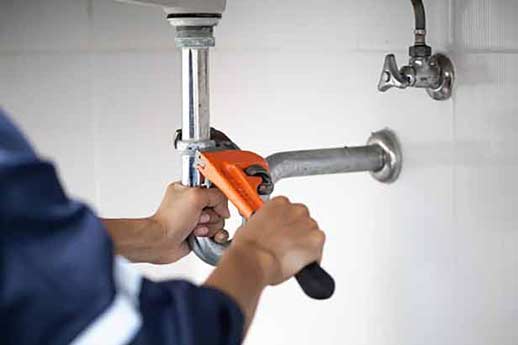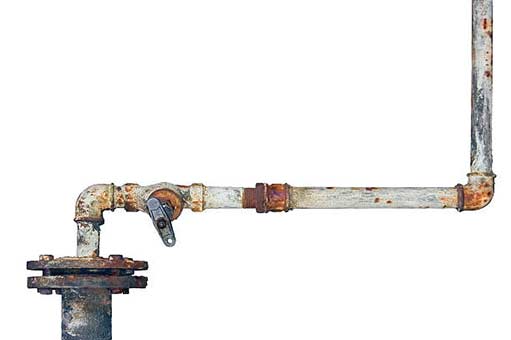Buying a house is a significant investment, and it is crucial to ensure that you make an informed decision. One aspect that often goes unnoticed but can lead to significant problems is the plumbing system of the house. A house with bad plumbing can result in costly repairs and inconvenience down the line. Here we will discuss how to spot and avoid buying a house with bad plumbing. Whether you are a first time homebuyer or an experienced real estate investor, these tips will help you make a wise choice.
Understanding the Importance of Plumbing
Plumbing is an essential component of any home. It involves the system of pipes, fixtures, and fittings that supply water to the house and remove wastewater. A well-maintained plumbing system ensures a constant supply of clean water and proper disposal of waste. On the other hand, a house with bad plumbing can bring numerous problems, including leaks, water damage, mold growth, and even structural issues. Therefore, it is crucial to thoroughly inspect the plumbing system before purchasing a house.
Signs of Bad Plumbing
While some plumbing issues may be obvious, others require a closer inspection. Here are some signs that indicate potential plumbing problems:
- Low Water Pressure: If the water flow in the house is weak, it may indicate a problem with the pipes or the water supply.
- Unpleasant Odors: Foul smells coming from the drains could signal a drainage issue or sewer problem.
- Discolored Water: Brown or rusty water can indicate pipe corrosion or other issues within the plumbing system.
- Water Stains: Yellow or brown stains on walls or ceilings might suggest previous or ongoing water leaks.
- Noisy Pipes: If you hear banging or knocking sounds when using the taps, it could point to loose pipes or water hammer issues.
- Visible Leaks: Wet spots, dripping faucets, or visible water leaks should be a red flag.
These signs can vary in severity, and it is advisable to talk with a professional plumber to assess the magnitude of the problem.
Inspect the Plumbing System
When viewing a potential house, it is essential to inspect the plumbing system thoroughly. Here are some tips to help you spot potential plumbing issues:
Check Water Pressure and Temperature
Turn on multiple faucets simultaneously to test the water pressure. Inadequate water pressure could indicate a problem with the pipes or water supply. Additionally, take note of the water temperature. Inconsistent temperatures or fluctuations can suggest issues with the water heater or plumbing system.
Inspect Drains and Fixtures
Examine sinks, showers, and toilets for any signs of leaks or damage. Run the faucets and flush the toilets to ensure they are in proper working condition. Slow drainage or gurgling sounds when using the drains might indicate a clog or blockage in the pipes.
Look for Water Stains or Mold
Inspect walls, floors, and ceilings for any visible water stains or mold growth. These signs can indicate a previous or ongoing plumbing issue, such as leaks or water seepage.
Check the Water Meter
Locate the water meter on the property and monitor it for any signs of continuous water flow when all faucets are turned off. A constantly running water meter could indicate a hidden leak that needs to be found.
Inspect the Basement
Basements are susceptible to water damage, so it is crucial to inspect this area carefully. Look for signs of water stains, dampness, or mold growth. Additionally, check the sump pump if the house has one.

A professional can identify hidden issues and give you a detailed report of the condition of the plumbing, helping you make an informed decision.
Consult a Professional Plumber
While some plumbing issues may be visible during a house viewing, many problems require a professional assessment. Before making a final decision, it is highly recommended to hire a licensed plumber to thoroughly inspect the plumbing system. A professional can identify hidden issues and give you a detailed report of the condition of the plumbing, helping you make an informed decision.
Avoiding Houses with Bad Plumbing
Prevention is better than cure, especially when it comes to buying a house with bad plumbing. To avoid purchasing a property with significant plumbing issues, keep the following tips in mind:
Work with a Reliable Real Estate Agent
A reputable real estate agent with in-depth knowledge of the local housing market can help guide you towards properties with well-maintained plumbing systems. They can also recommend professional plumbers for inspections.
Research the House’s History
Before making an offer, conduct research on the house’s history, including past plumbing problems or repairs. Request disclosure statements from the seller regarding any known plumbing issues. This information can help you assess the potential risks.
Include a Plumbing Clause in the Purchase Agreement
To protect yourself, include a plumbing clause in the purchase agreement that allows you to back out of the deal if significant plumbing issues are discovered during the inspection.
Consider a Professional Plumbing Inspection Contingency
If you suspect plumbing issues but are still interested in the property, include a contingency in the purchase agreement that allows for a professional plumbing inspection. This will provide you with the opportunity to negotiate repairs or a lower purchase price based on the findings.
Learn about House Flipping
Houses that have recently undergone extensive renovations, especially when they were “flipped” for profit, may have hidden plumbing issues. Educate yourself about common shortcuts taken by house flippers, such as cosmetic fixes that overlook underlying plumbing problems.
In Conclusion
Buying a house with bad plumbing can result in many headaches and expenses. By understanding the signs of bad plumbing and thoroughly inspecting the plumbing system before making a purchase, you can avoid unnecessary stress and financial burdens. Remember to contact a professional plumber for a comprehensive assessment, and take preventative measures to ensure you are investing in a property with a reliable plumbing system. With these tips in mind, you can make a well-informed decision and find a home that meets your needs without compromising on the quality of the plumbing system.
